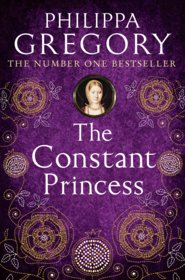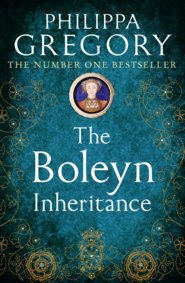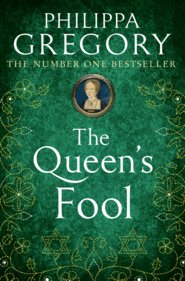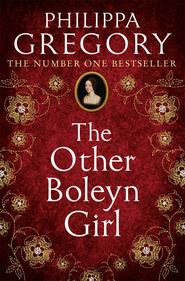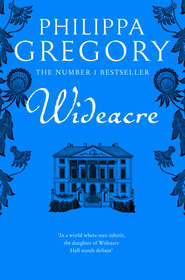По всем вопросам обращайтесь на: info@litportal.ru
(©) 2003-2025.
✖
The Other Queen
Автор
Год написания книги
2019
Настройки чтения
Размер шрифта
Высота строк
Поля
‘There is nothing about the countess and her abilities that does not befit her position,’ he says smoothly. ‘And her position is very grand indeed. You are the greatest nobleman in England, Talbot, we all know that. And you do right to remind us, should we ever make the mistake of forgetting it. And all of us at court appreciate Bess’s good sense, she has been a favourite amongst us all for many years. I have watched her marry upwards and upwards with great pleasure. We are counting on her to make Tutbury Castle a pleasant home for the Queen of Scots. The countess is the only hostess we could consider. No-one else could house the Queen of Scots. Any other house would be too mean. No-one but Bess would know how to do it. No-one but Bess could triumph.’
This flattery from Cecil should content me; but we seem to be back to Bess again, and Cecil should remember that before I married her she was a woman who had come up from nothing.
1568, Winter, Bolton Castle: Mary (#ulink_b38fc42f-54c0-5cf3-9cd2-ce0524022ff7)
It is to be tonight. I am going to escape from Bolton Castle, their so-called, soi-disant, ‘impregnable’ Yorkshire castle, this very night. Part of me thinks: I dare not do this; but I am more terrified of being trapped in this country and unable to go either forward or back. Elizabeth is like a fat ginger cat on a cushion, she is content to sit and dream. But I must reclaim my throne; and in every day of my exile, the situation grows worse for me. I have castles holding out for me in Scotland and I must get relief to them at once. I have men ready to march under my standard, I cannot make them wait. I cannot let my supporters die for lack of my courage. I have Bothwell’s promise that he will escape from Denmark, and return to command my armies. I have written to the King of Denmark, demanding Bothwell’s freedom. He is my husband, the consort of a queen, how dare they hold him on the word of a merchant’s daughter who complains that he promised marriage? It is nonsense, and the complaints of such a woman are of no importance. I have a French army mustering to support me, and promises of Spanish gold to pay them. Most of all, I have a son, a precious heir, mon bébé, mon chéri, my only love; and he is in the hands of my enemies. I cannot leave him in their care: he is only two years old! I have to act. I have to rescue him. The thought of him without proper care, not knowing where I am, not understanding that I was forced to leave him, burns me like an ulcer in my heart. I have to get back to him.
Elizabeth may dawdle; but I cannot. On the last day of her nonsensical inquiry I received a message from one of the Northern lords, Lord Westmorland, who promises me his help. He says he can get me out of Bolton Castle, he can get me to the coast. He has a train of horses waiting in Northallerton and a ship waiting off Whitby. He tells me that when I say the word he can get me to France – and as soon as I am safe at home, in the country of my late husband’s family, where I was raised to be queen, then my fortunes will change in an instant.
I don’t delay, as Elizabeth would delay. I don’t drag my feet and puzzle away and put myself to bed, pretending illness as she does whenever she is afraid. I see a chance when it comes to me and I take it like a woman of courage. ‘Yes,’ I say to my rescuer. ‘Oui,’ I say to the gods of fortune, to life itself.
And when he says to me: ‘When?’, I say, ‘Tonight.’
I don’t fear, I am frightened of nothing. I escaped from my own palace at Holyrood when I was held by murderers, I escaped from Linlithgow Castle. They will see that they can take me but they cannot hold me. Bothwell himself said that to me once, he said: ‘A man can take you; but you cling to your belief that he can never own you.’ And I replied: ‘I am always queen. No man can command me.’
The walls of Bolton Castle are rough-hewn grey stone, a place built to resist cannon; but I have a rope around my waist and thick gloves to protect my hands and stout boots so that I can kick myself away. The window is narrow, little more than a slit in the stone, but I am slim and lithe, and I can wriggle out and sit with my back to the very edge of the precipice, looking down. The porter takes the rope and hands it to Agnes Livingstone and watches her as she ties it around my waist. He makes a gesture to tell her to check that it is tight. He cannot touch me, my body is sacred, so she has to do everything under his instruction. I am watching his face. He is not an adherent of mine, but he has been paid well, and he looks determined to do his part in this. I think I can trust him. I give him a little smile and he sees my lip tremble with fear for he says, in his rough northern accent, ‘Dinnae fret, pet.’ And I smile as if I understand him and watch him wind the rope around his waist. He braces himself and I wriggle to the very brink and look down.
Dear God, I cannot see the ground. Below me is darkness and the howl of air. I cling to the post of the window as if I cannot let it go. Agnes is white with fear, the porter’s face steady. If I am going to go, I have to go now. I release the comfort of the stone arch of the window, I let myself stretch out on to the rope. I step out into air. I feel the rope go taut and terrifyingly thin, and I start to walk backwards, into the darkness, into nothingness, my feet pushing against the great stones of the walls, my skirt filling and flapping in the wind.
At first, I feel nothing but terror; but my confidence grows as I take step after step and feel the porter letting out the rope. I look up and see how far I have come down, though I don’t dare to look below. I think I am going to make it. I can feel the joy at being free growing inside me until my very feet tremble against the wall. I feel sheer joy at the breath of the wind on my face, and even joy at the vast space beneath me as I go down; joy at being outside the castle when they think I am captive, cooped up in my stuffy rooms, joy at being in charge of my own life again, even though I am dangling at the end of a rope like a hooked trout, joy at being me – a woman in charge of her own life – once more.
The ground comes up underneath me in a dark hidden rush and I stagger to my feet, untie the rope and give it three hard tugs and they pull it back up. Beside me is my page, and Mary Seton, my lifelong companion. My maid-in-waiting will come down next; my second lady-in-waiting, Agnes Livingstone, after her.
The sentries at the main gate are careless, I can see them against the pale road, but they cannot see us against the dark of the castle walls. In a moment there is to be a diversion – a barn is to be fired, and when they hurry to put out the fire, we will run down to the gate where horses will come galloping up the road, each rider leading a spare, the fastest for me, and we will be up and away, before they have even realised we are gone.
I stand quite still, not fidgeting. I am excited and I feel strong and filled with the desire to run. I feel as if I could sprint to Northallerton, even to the sea at Whitby. I can feel my power flowing through me, my strong young desire for life, speeding faster for fear and excitement. It beats in my heart and it tingles in my fingers. Dear God, I have to be free. I am a woman who has to be free. I would rather die than not be free. It is true: I would rather die than not be free.
I can hear the soft scuffle as Ruth, my maid, climbs out of the window and then the rustle of her skirts as the porter starts to lower her. I can see the dark outline of her quietly coming down the castle wall, then suddenly the rope jerks and she gives a little whimper of fear.
‘Sshh! Sssh!’ I hiss up at her, but she is sixty feet above me, she cannot hear. Mary’s cold hand slips into mine. Ruth isn’t moving, the porter is not letting her down, something has gone terribly wrong, then she falls like a bag of dusters, the rope snaking down from above her as he drops it, and we hear her terrified scream.
The thud when she hits the ground is an awful sound. She has broken her back, for sure. I run to her side at once, and she is moaning in pain, her hand clamped over her mouth, trying, even at this moment, not to betray me.
‘Your Grace!’ Mary Seton is tugging at my arm. ‘Run! They are coming.’
I hesitate for a moment, Ruth’s pale face is twisted with agony, now she has her fist thrust in her mouth, trying not to cry out. I look towards the main gate. The sentries, having heard her scream, are turned questingly towards the castle, a man runs forward, shouts to another, someone brings a torch from the sconce at the gateway. They are like hounds spreading out to scent the quarry.
I pull my hood up over my head to hide my face, and start to duck backwards into the shadows. Perhaps we can get around the castle and out of a back gate. Perhaps there is a sally-port or somewhere we can hide. Then there is a shout from inside the castle, they have raised the alarm in my chambers. At once the night is ablaze with the bobbing flames of torches and ‘Hi! Hi! Hi!’ they bellow like hunters, like beaters driving the game before them.
I turn to one side and then the other, my heart thudding, ready to run. But now they have seen us silhouetted by their torches against the dark walls of the castle, and there is a great bellow of ‘View halloa! Here she is! Cut her off! Run round! Here she is! Bring her to bay!’
I can feel my courage drain from me as if I am bleeding to death, and I am icy. The taste of defeat is like cold iron in my mouth, like the bit for an unbroken filly. I could spit the bitter taste. I want to run and I want to throw myself face down on the ground and weep for my freedom. But this is not the way of a queen. I have to find the courage to push back my hood and stand straight and tall as the men come running up and thrust their torches in my face so they can see what they have caught. I have to stand still and proud, I have to be seen to be a queen, even dressed like a serving woman in a black travelling cape. I have to enact being a queen so they do not treat me as a serving woman. There is nothing more important now, at this moment of my humiliation, than preserving the power of majesty. I am a queen. No mortal man may touch me. I have to make the magic of majesty all alone, in the darkness.
‘Je suis la reine,’ I say, but my voice is too quiet. I can hear it tremble with my distress. I stand taller and lift up my chin, I speak louder. ‘I am the Queen of Scotland.’
Thank God they don’t grab me, nor put so much as one hand on me. I think I would die of shame if a common man were to abuse me again. The thought of Bothwell’s hand on my breast, his mouth on my neck, makes me burn even now.
‘I warn you! You may not touch me!’
They form a circle around me with their bowed-down torches, as if I am a witch that can be held only by a ring of fire. Someone says that Lord Talbot, the Earl of Shrewsbury, is coming. He was at his dinner with Sir Francis Knollys and Lord Scrope, and they have told him that the Scots queen was running away like a thief in the night, but she is caught now.
And so that’s how he first sees me, when he comes at a stumbling run, his tired face scowling with worry. He sees me standing alone, in a black cape with my hood pushed back from my face so that everyone can recognise me and know that they may not put a hand on me. A white-faced anointed queen of the blood. A queen in every way, showing the power of defiance, a queen in the authority of her stance, a queen in everything but the ownership of her thrones.
I am a queen at bay.
1568, Winter, Bolton Castle: George (#ulink_d710b937-7c2f-5bf9-ba05-d95e84ef6bef)
They have her ringed with torches, like a witch held in by fire, ready for burning. As I run up, my breath is coming hard and my chest is tight, my heart is pounding from the sudden alarm, I sense the stillness around her as if they are all frozen by an enchantment. As if she were a witch indeed and the mere sight of her has turned them all to stone. Her hand holds back her hood from her face and I can see her dark hair, cropped jagged and short as an urchin’s, the white oval of her face and her dark luminous eyes. She looks at me, unsmiling, and I cannot look away. I should bow, but I cannot bow. I should introduce myself, at this, our first meeting; but I am lost for words. Someone should be here to present me, I should have a herald to announce my titles. But I feel as if I am naked before her: it is just her, and just me, facing each other like enemies across the flames.
I stare at her and take in every aspect of her. I just stare and stare like a schoolboy. I want to speak to her, to introduce myself as her new host and her guardian. I want to seem an urbane man of the world to this cosmopolitan princess. But I gag on words, I can find neither French nor English. I should reproach her for this wanton attempt at escape; but I am struck dumb, as if I am powerless, as if I were horrified by her.
The blazing torches give her a crimson halo, as if she were a burning saint, a fiery saint of red and gold; but the sulphurous smell of the smoke is the very stink of hell. She looks like a being from unearthly regions, neither woman nor boy, a gorgon in her cold forbidding beauty, a dangerous angel. The sight of her, ringed with fire, strange and silent, fills me with wordless terror as if she were some kind of portent, a blazing comet, foretelling my death or disaster. I am most afraid, though I don’t know why, and I stand before her and I can say nothing, like an unwilling disciple terrified into adoration; though I don’t know why.
1568–9, Winter, Tutbury Castle: Bess (#ulink_741f59e8-9208-5470-8662-799bb557c86e)
Mary, this most troublesome queen, delays as long as she can. Someone has told her that Tutbury Castle is no fit place for a queen of the blood and now Her Grace refuses to come here, and demands to be sent to her good cousin’s court, where she knows well enough that they are celebrating the twelve days of Christmas with feasts and dancing and music, and at the heart of it all will be Queen Elizabeth, with a light heart and light feet, darting around and laughing because the Scots, the greatest threat to the peace of her country, are all falling out amongst themselves, and the greatest rival to her power, the other Queen of England, their queen, is a prisoner without plans for release. Or honoured guest, as I believe I am to call her, as I set about making Tutbury something more than a rapidly improvised dungeon.
I must say that Mary Queen of Scots is not the only one who would rather be at Hampton Court this Christmas season, and can find little joy in the prospect of a long cold winter at Tutbury. I hear from my friends who send me all the gossip that there is a new suitor for Elizabeth’s hand, the Austrian archduke who would ally us with Spain and the Hapsburgs, and Elizabeth is beside herself with the sudden surging of lust for her last chance to be a wife and a mother. I know how the court will be: my friend Robert Dudley will be smiling but guarded – the last thing he wants at court is a rival to his constant courtship of the queen. Elizabeth will be in a fever of vanity, every day will bring new pretty things to her rooms, and her women will rejoice in the spoil of her cast-offs. Cecil will manage everything to the outcome of his choosing, whatever that may be. And I should be there, watching and gossiping with everyone else.
My son Henry, at service in Robert Dudley’s household, writes me that Dudley will never allow a marriage which would displace him from Elizabeth’s side, and that he will oppose Cecil as soon as that old fox shows his hand. But I am for the marriage – any marriage. Pray God that she will have him. She has left it as late as any woman dare, she is thirty-five, dangerously old to give birth to a first child; but she will have to grit her teeth and do it. We have to have a son from her, we have to have an heir to the throne of England. We have to see where we are going.
England is a business, an estate like any other. We have to be able to plan ahead. We have to know who will inherit and what he will get, we have to foresee what he will do with his inheritance. We have to see our next master and know what his plans will be. We have to know whether he will be Lutheran or Papist. Those of us living in rebuilt abbeys and dining off church silver are especially anxious to know this. Please God this time she settles on this suitor, marries him, and gives us a new steady Protestant master for the trade of England.
Elizabeth is a hard mistress to serve, I think, as I command the carpenters to mend the gaps in the floorboards. This would have been our first Christmas at court, for me and my lord the earl. Our first Christmas as newlyweds, the first Christmas I would have been a countess at court, where I should have sparkled like a snowflake and taken great joy in settling old scores from my newly raised position. But instead, the queen allowed my husband the earl only a couple of days with me before dispatching him to Bolton Castle to fetch the Scots Queen while I set to work on this hovel.
The more I repair this half-ruined wreck of a house the more ashamed of it I am, though God knows it is no fault of mine. No house of mine would ever fall into disrepair like this. All of my properties – most of which came to me through the good management of my second husband, William Cavendish – were renovated and rebuilt as soon as we acquired them. We never bought anything without improving it. Cavendish prided himself on parcelling together plots of land and swapping one farm for another till he made a handsome estate, which I would then run at a profit. He was a careful man, a great businessman, an older man, over forty when he married me, his bride of nineteen.
He taught me how to keep an accounts book for our household, and make it up every week, as faithfully as reading a sermon on Sunday. When I was little more than a girl, I used to bring my household book to him like a child with her schoolwork, and he would go through it with me on a Sunday evening, as if we were saying our prayers together, like a pious father and daughter, our heads side by side over the book, our voices murmuring the numbers.
After the first month or so, when he saw that I had such an aptitude and such a love for the figures themselves, as well as the wealth they represented, he let me see the accounts book for the small manor he had just bought, and said that I could keep it too, to see if I would manage it well. I did so. Then, as he bought more properties, I took care of them. I learned the wages of field labourers as well as housemaids, I learned how much we should pay for cartering as well as for washing the windows. I started to run his farms as I ran our house and I kept the books for them all the same.
He taught me that it means nothing to own land or money as the old lords own their estates and waste them from one generation to another. Wealth means nothing at all if you do not know, to the last penny, what your fortune is. You might as well be poor if you do not know what you have. He taught me to love the order of a well-kept accounts book and how the bottom of the page at the end of each week should show the balance between money coming in and money going out; so that you know, and know to a penny, whether you are ahead in the world or behind.
Cavendish told me that this is not how the great lords do it. Many of their stewards do not even keep the books like this, the new way, with receipts and expenses put side by side for comparison, and this is why, at the end of the day, we will do better than them. He told me that they treat their houses and their lands and their tenants and their fortunes as if they were all a great mass that cannot be calculated. So – since this is what they believe – they never try to calculate their wealth. They inherit and pass it on wholesale, without inventory. They lose and gain without keeping account. They have no idea whether a townhouse should rent out at a greater profit than a wheatfield. When they are taxed they guess at what they are worth, when they borrow money they cannot calculate their fortune. When they are paid a huge sum in war, or inherit treasure on marriage, they tumble it into their strongroom and never even list it. Whereas we, the new men and women who have risen so recently, we look at every field, at every trade, at every ship, and we see that it pays for itself.
Slowly, as Cavendish and I added property and houses to our fortune, each one chiselled from the dying body of the old church, I created new books, a new one for each new estate, each one showing a good balance of profit on rents, or sale of wool, or hay or corn or wheat or iron ore, or whatever goods each land could bring to us. Slowly I learned the prices of trees standing in a forest and the value of timber when they were felled. Slowly I learned to estimate the price of wool on a sheep’s back or the profits to be made from a flock of geese at Christmas. My husband Cavendish hired good reliable men who had served the monks in the abbeys and the nuns in the nunneries and knew how lands should yield good rents and revenue, and I set myself to learn from them. Soon it was my task to read the accounts brought to me by the stewards of our growing estates, I was overseer as well as house manager. Soon it was I who knew to the last penny that our properties were well-run and our wealth was increasing.
None of this happened overnight, of course. We were married ten years, we had our children – eight of them, bless them all, and bless the good husband who gave them to me, and the fortune to endow them. He rose high in the favour of the court. He served first Thomas Cromwell and then directly the king. He served in the Court of Augmentations, that prime position, and travelled the country valuing the church properties and turning them over to the Crown, as one after another proved to be unfit for the work of the Lord and better closed down.
And if it happened that the houses that were the richest, and the most profitable, were the first to attract the attention of godly reform, then it was not for us to question the mysterious ways of Providence. If they had been good men they would have been good stewards of the wealth of the Lord and not squandered the church’s fortune: encouraging the poor in idleness, and building churches and hospitals of excessive beauty. Better for God that poor stewards be replaced by those who knew the value of money and were ready to set it to work.
Of course my husband bought on his own account. God knows, everyone in England was buying land on his own account, and at the most desperate prices. It was like the herring fleet coming in, all at once. We were like fishwives on the harbour wall, revelling in a glut. We were all mad to get our hands on our share of the old church lands. It was a banquet of land-grabbing. No-one questioned William as he valued for the Crown and then bought and sold for himself. It was expected by everyone that he should supplement his fees by trading on his own account, and besides, he took no more than was customary.
How did he do it? He valued land low in his own favour, sometimes for the benefit of others. Sometimes he received gifts, and sometimes, secret bribes. Of course! Why not? He was doing the king’s work and furthering the reform of the church. He was doing God’s work in expelling corrupt priests. Why should he not be richly rewarded? We were replacing a rotten old church with one in the true image of His son. It was glorious work. Was my husband not on God’s own work, to destroy the old bad ways of the Papist church? Was he not absolutely right, directed by God Himself, to take wealth away from the corrupt Papal church and put it into our hands, who would use it so much better? Is that not the very meaning of the sacred parable of the talents?
And all the while I was his apprentice, as well as his wife. I came to him a girl with a burning ambition to own my own property and to be secure in the world. Never again would I be a poor relation in the house of a richer cousin. He taught me how I could do it. God bless him.
Then I told him that the Chatsworth estate was for sale, near to my old home of Hardwick in Derbyshire, that I knew it well and it was good land, that the original owner was my cousin but he had sold it to spite his family, that the new owner, frightened by claims against the freehold, was desperate for a sale, that we could make a sharp profit if we were not too particular at taking advantage of a fool in trouble. William saw, as I did, the profit that could be made from it, and he bought it for me at a knockdown price, and swore it would be the greatest house in the North of England, and it would be our new home.






